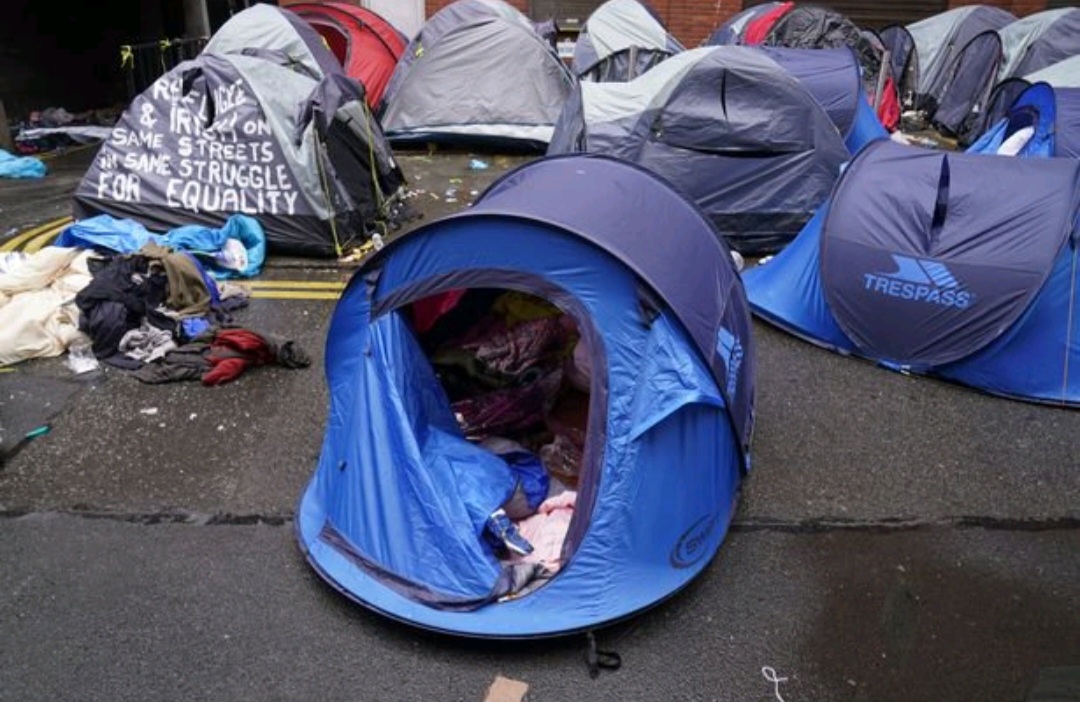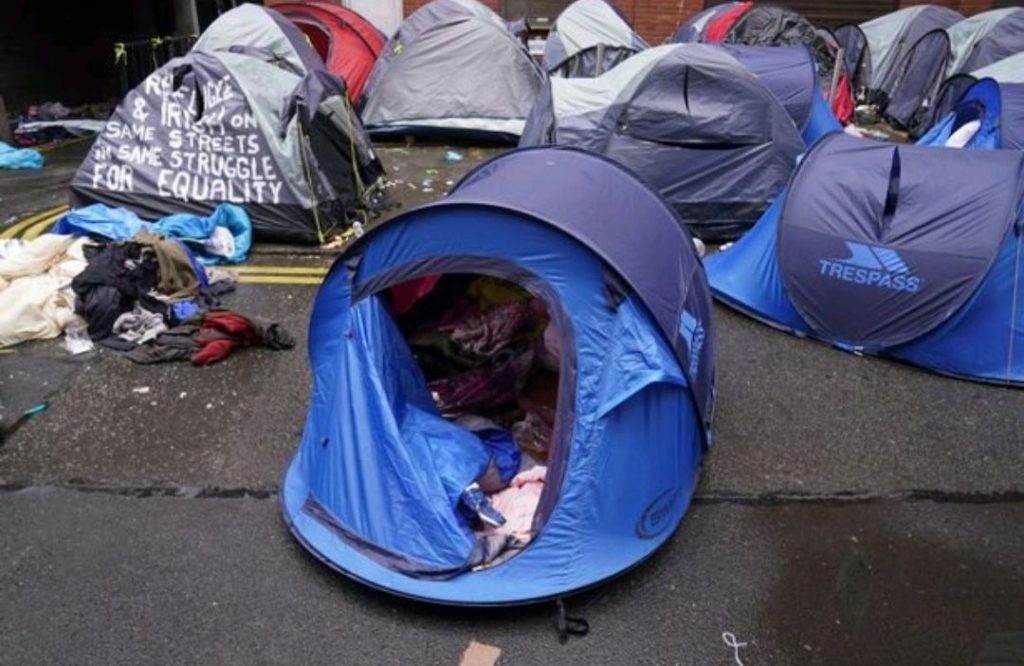
The individuals who sought international protection were residing in a makeshift camp located outside the office where they applied for assistance. Some of them, who were transported by bus from the temporary camp to the Dublin Mountains earlier today, are now making their way back to the city center on foot.
These individuals were living in a temporary camp specifically set up on Mount Street. Concerns arose regarding the living conditions within the camp and the overall well-being of its residents.

This morning, the Department of Integration confirmed that they provided alternative tented accommodation at a site in Crooksling. This location offers food, personal toiletries, as well as toilet and shower facilities.
According to the volunteer group Social Rights Ireland, five buses arrived outside the International Protection Office at 9 am and transported asylum seekers to a field next to a vacant nursing home in Saggart.
“They were given new tents and directed to set them up in the field beside the building. They were also informed that they could use the bathroom and shower facilities at the nursing home,” stated Social Rights Ireland. “However, they were not informed about the duration of this arrangement or if there are any plans to provide them with secure indoor accommodation.
“Some of the men have decided not to stay in Saggart and are currently walking back to the International Protection Office, which is approximately 20 km away.”
The volunteer group emphasized that sleeping outside in Saggart is making their situation worse because they don’t have access to the same services available in the city.
In an earlier statement, the Department of Integration informed Dublin Live that Dublin City Council would be “cleaning” the Mount Street area. A spokesperson stated: “The Department has been working closely with Dublin City Council regarding the situation at Mount Street, and DCC has confirmed that they will clean up the site once the tents currently there are removed.
“Overall, finding accommodation remains very difficult. There are very few places available.
“Any accommodation that is available is mainly being used for families to prevent women and children from becoming homeless. Since January, about 2,400 beds have been made available for people needing accommodation.”




